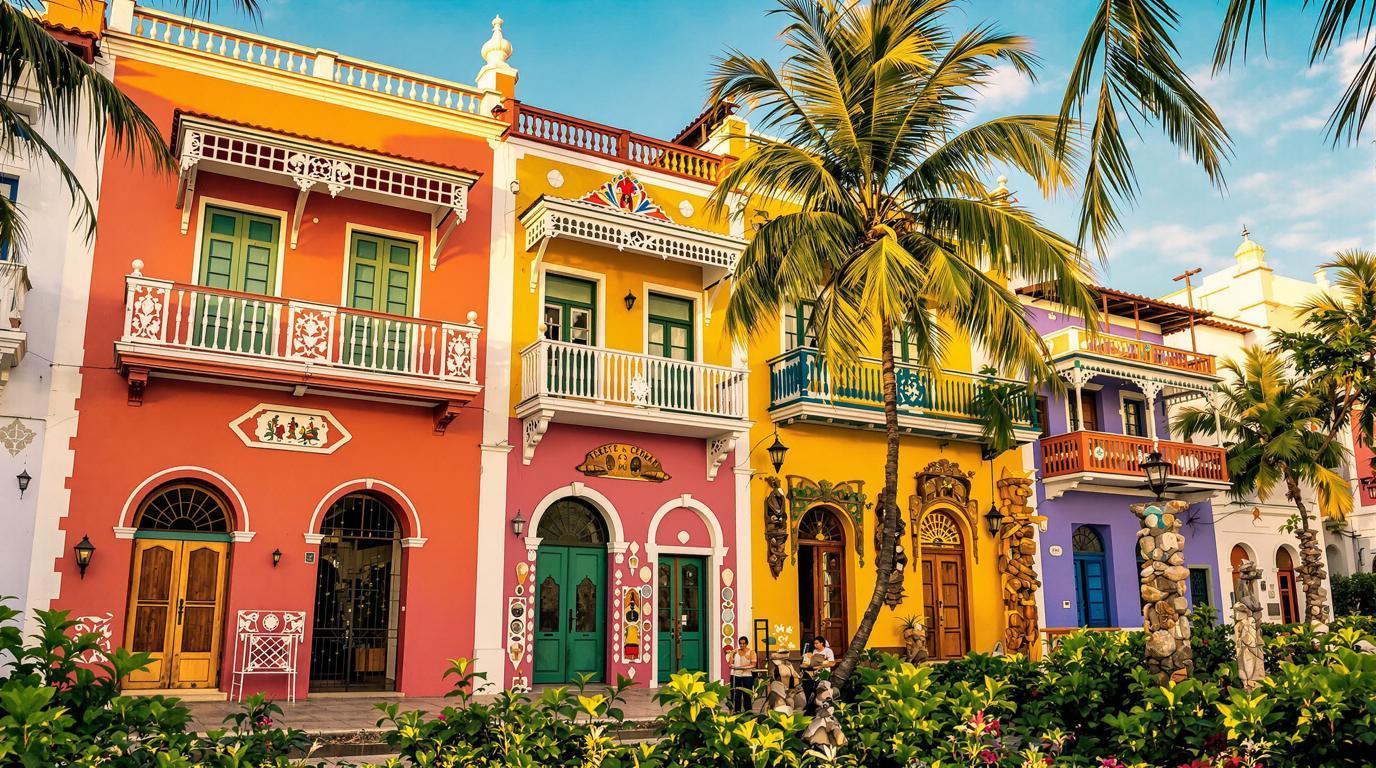When I first heard Spanish echoing through the streets of an African capital, I thought I was hallucinating. But Malabo, Equatorial Guinea isn’t just any city—it’s the only Spanish-speaking capital on the entire African continent. This coastal gem on Bioko Island houses 165,000 residents who guard secrets that most of the world has never discovered.
Unlike the overcrowded tourist magnets of West Africa, Malabo remains authentically untouched. The Bubi indigenous people have preserved their sacred traditions here for centuries, creating a cultural fusion that exists nowhere else on Earth. Spanish colonial architecture meets ancient Bubi rituals in ways that will reshape everything you thought you knew about Africa.
This isn’t another travel destination—it’s a living museum where two worlds collide in perfect harmony. Every street corner tells a story that guidebooks have never captured, every conversation reveals layers of history that mainstream tourism has completely missed.
The linguistic miracle that defies African geography
Spanish conversations in equatorial Africa
Walking through Malabo’s markets feels like stepping into an alternate reality. Spanish is spoken by 90% of residents, making everyday interactions feel surreal for travelers expecting traditional African languages. Vendors haggle in perfect Castilian while selling tropical fruits that don’t exist in Spain, creating conversations that shouldn’t be possible according to geography.
The colonial legacy that survived independence
While most African nations abandoned colonial languages post-independence, Equatorial Guinea embraced Spanish as cultural identity. This decision created the continent’s only Hispanic-African fusion, where flamenco rhythms blend with Bubi drums and paella incorporates local palm wine. The result is a cultural symphony that exists in only one place on Earth.
Bubi guardians protecting ancient island wisdom
Sacred pakira arches that ward off spirits
The Bubi people construct ceremonial arches adorned with shells and animal remains at village entrances, following traditions that predate European contact. These sacred structures, combined with revered iko trees, create spiritual barriers that locals believe protect their communities. Tourist cameras are forbidden near these sites, maintaining their sacred power.
Cultural preservation groups fighting for survival
Las Hijas de Bisila and Las Hijas del Sol work tirelessly to preserve Bubi language and customs against Spanish dominance. Their efforts include oral history projects, traditional dance performances, and language revival initiatives that keep ancient wisdom alive. These groups represent the soul of Bioko Island’s cultural resistance.
The exclusive access that keeps crowds away
Visa requirements that filter visitors
Equatorial Guinea’s strict visa policies require embassy applications months in advance, effectively limiting tourism to serious cultural explorers. Unlike visa-on-arrival destinations, this process ensures only committed travelers reach Malabo. The bureaucratic barriers protect local communities from overtourism while maintaining authentic cultural experiences.
Limited flights that preserve authenticity
With connections primarily through Madrid and European hubs, reaching Malabo requires dedication that casual tourists won’t invest. Flight costs from New York range $900-$1,200, while London connections cost £600-£850. This natural barrier maintains the city’s exclusive character while supporting sustainable visitor numbers.
The cultural fusion that rewrites African narratives
Architecture where two worlds meet
Malabo’s streetscape showcases Spanish colonial buildings adapted with Bubi design elements, creating architectural fusion found nowhere else. Government buildings display European facades while incorporating indigenous artistic motifs. This visual storytelling represents centuries of cultural negotiation between African tradition and Spanish influence.
Cuisine that defies continental boundaries
Local restaurants serve malamba palm wine with Spanish tapas, while markets sell cocoa-infused Spanish pastries alongside traditional Bubi fish stews. This culinary fusion creates dining experiences that challenge preconceptions about African and Spanish food traditions. Every meal becomes a cultural education that expands understanding of both cultures.
Planning your exclusive Malabo discovery
The dry season from December to February offers optimal conditions for exploring Bioko Island’s cultural treasures. Current timing in July falls within the humid season, requiring careful planning for outdoor cultural site visits. Local guides become essential for navigating both weather challenges and cultural protocols.
Malabo represents the only opportunity to experience Spanish-African fusion in its authentic form. This isn’t just another travel destination—it’s a living testament to cultural adaptation that exists nowhere else on Earth. For travelers seeking truly exclusive experiences, Malabo offers discoveries that will forever change your understanding of what Africa can be.
Frequently asked questions about Malabo travel
Do I need to speak Spanish to visit Malabo?
While Spanish fluency enhances the experience significantly, basic conversational Spanish allows meaningful interactions with locals. Many residents also speak French, providing alternative communication options for travelers.
How safe is Malabo for international visitors?
Malabo maintains relative stability with standard urban precautions recommended. Political climate remains stable, though travelers should monitor consular advisories for current security updates before departure.
What’s the best way to experience Bubi culture respectfully?
Engage local cultural guides who understand sacred site protocols and arrange proper permissions for ceremonial area visits. Respect photography restrictions near spiritual locations and always ask permission before documenting cultural practices.
How does Malabo compare to other African island capitals?
Unlike tourist-heavy destinations like Zanzibar or Cape Verde, Malabo offers authentic cultural immersion without commercial tourism infrastructure. This creates more genuine local interactions but requires greater travel preparation and cultural sensitivity.
What should I budget for a Malabo cultural exploration?
Expect higher costs than mainland African destinations due to limited infrastructure and import dependencies. Budget $150-200 daily for accommodations, meals, and cultural guide services, plus significant international flight investments for this exclusive experience.
